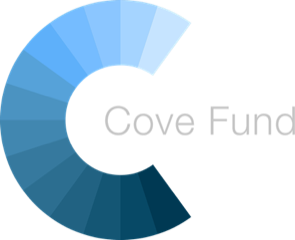Avoiding Common Pitfalls: What LPs Wish More Founders Understood
For early-stage founders, building a startup is often a sprint fueled by passion and grit. But as any seasoned investor will tell you, success isn’t just about vision—it’s about avoiding avoidable mistakes. We recently asked several of Cove Fund’s Limited Partners (LPs) to share the most common missteps they see from founders. Their insights reveal both tactical and strategic blind spots that can derail even the most promising ventures.
1. The Lone Wolf Fallacy
Some founders cling too tightly to control—insisting on retaining an outsized ownership stake or trying to build a company solo. This often stems from a desire to “go it alone” rather than surrounding themselves with co-founders, advisors, or investors. But startups are team sports. Successful founders build strong teams and cultivate partnerships that expand their capabilities and accelerate growth. Equity is a powerful incentive—use it strategically to attract top talent and align your team around long-term success.
2. Misallocated Equity Among Co-Founders
It’s common to see founding teams split equity equally, regardless of contribution. While this may seem fair at the outset, it rarely reflects the varying levels of effort, expertise, and risk each founder brings to the table. Savvy founders align equity with value creation—rewarding early risk, domain expertise, and execution on key performance indicators (KPIs) like hitting growth targets or achieving breakeven. Structuring equity thoughtfully can prevent resentment and incentivize long-term commitment.
3. Capital in the Bank, Discipline Out the Window
Raising capital is not a milestone to relax—it’s a responsibility to execute. LPs shared concerns about founders who lose fiscal discipline after a funding round, mistaking capital as a cushion instead of a catalyst. Smart founders maintain a scrappy mindset, deploying funds to drive milestones, validate hypotheses, and extend runway. Demonstrating capital efficiency—not just raising capital—is what earns trust from current and future investors.
4. Coachability Over Conviction
Conviction is critical—but it must be balanced with humility. LPs consistently cited uncoachable founders as a top red flag. The ability to listen, reflect, and pivot in response to new information is foundational to building a resilient company. Founders who shut out feedback limit their own growth and risk missing critical market signals. The best leaders stay open to learning, even when it’s uncomfortable.
5. Valuation Delusion and Dilution Missteps
High valuations may feel validating in the short term, but they can become a trap. When valuations aren’t grounded in traction or market comps, they create unrealistic expectations that are difficult to meet in future rounds. Similarly, equity dilution is often misunderstood. Founders either give away too much too early—or cling to too much, too long—both of which can hurt the company’s scalability. Thoughtful planning around ownership, dilution, and funding strategy is essential to preserving optionality and attracting top-tier investors.
6. Flawed Go-To-Market Execution
LPs pointed to poor go-to-market (GTM) strategies as another frequent pitfall. Founders may underestimate the complexity of customer acquisition or fail to validate the channels that truly move the needle. A clear, well-reasoned GTM strategy—grounded in data, tested assumptions, and agile iteration—is a prerequisite for sustainable growth.
7. Strategic Drift and Operational Waste
When early capital is spent on unproductive activities—vanity marketing, overbuilt infrastructure, or chasing multiple markets—it signals a lack of strategic focus. The startups that break through are those that remain laser-focused on solving a specific pain point, iterating quickly, and learning fast. Every dollar and hour spent should map to a milestone or measurable return.
8. The “Nothing Will Go Wrong” Syndrome
Startups are inherently uncertain. Yet too many founders plan as if everything will go right. LPs stress the importance of risk awareness, contingency planning, and sober-minded scenario modeling. Hope is not a strategy—resilient startups expect turbulence and prepare accordingly.
Final Thought: Be Bold, But Be Prepared
Building a company takes vision, courage, and relentless execution. But avoiding common mistakes is just as important as seizing opportunities. As one LP put it: “The best founders know what they know—and are honest about what they don’t.” Listening to those who’ve seen the patterns, learned the hard lessons, and backed the winners can make the difference between building a company that survives—and one that scales.
